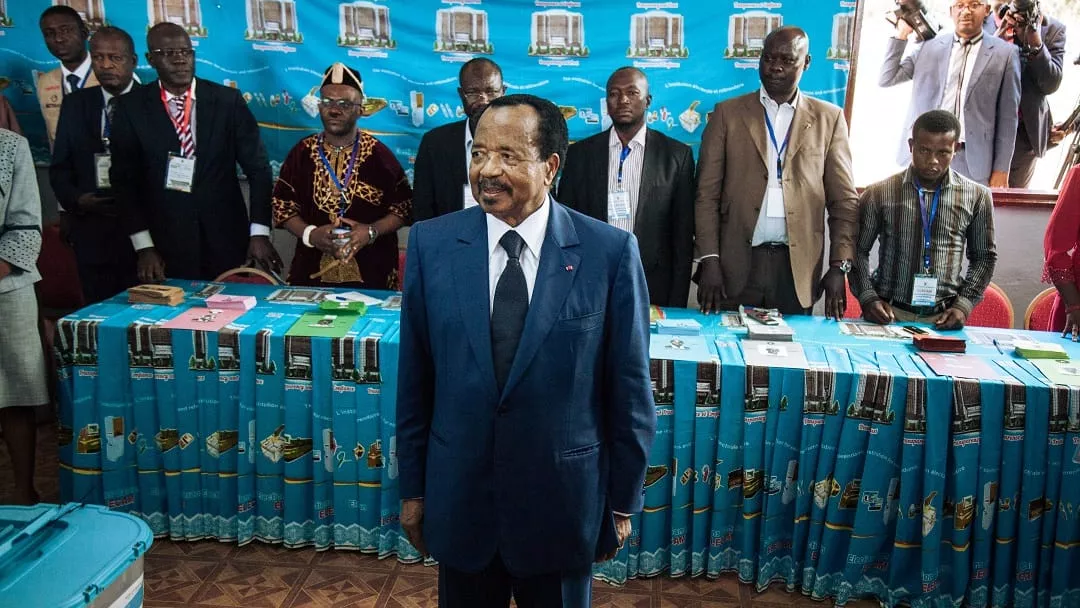
Cameroon’s presidential election campaigns are underway, but public sentiment suggests that the outcome may already be predetermined.
Observers warn that decades of entrenched political practices make a fair contest unlikely, even as new candidates emerge to challenge the status quo.
Political analysts note that Cameroon has a long history of disputed elections, and this year appears no different.
“There is a lot of excitement in Cameroon about the possibility of change,” commentators say, “but the same personalities who shaped the 1992 election landscape remain in place.”
President Paul Biya, a fixture in Cameroonian politics for more than four decades, is widely expected to secure another term. Analysts describe him as a politician who blends influence with institutional control.
“Biya is a player, a referee, and a match delay in a game he has no intention of losing,” the report notes, highlighting his extensive reach over the ruling Cameroon People’s Democratic Movement (CPDM) and national institutions.
Key opposition figures have faced significant hurdles. Prof. Maurice Kamto, a major contender, was disqualified from the race by the Constitutional Council, an institution critics say is closely aligned with the ruling party.
“This move removed a serious challenger and left the opposition reeling,” observers say.
The decision sparked widespread debate over the independence of Cameroon’s electoral framework, overseen by ELECAM, the country’s electoral management body.
Yet the campaign has produced unexpected developments.
Issa Tchiroma, a former minister and northern politician, has emerged as a potential “dark horse” candidate, proposing a three-year transitional plan to overhaul the political system.
Tchiroma has actively engaged communities in Cameroon’s English-speaking regions, signalling a shift in strategy that has unsettled government supporters.
Despite these challenges, concerns remain over voter registration and participation, particularly in areas affected by conflict or perceived political repression. Analysts warn that the government’s control over state resources, information, and security forces could heavily influence the outcome.
“The Biya regime has exhausted many tricks, but its influence over institutions continues to shape the electoral landscape,” one expert said. As Cameroon heads to the polls, questions about electoral fairness, transparency, and public trust dominate the national conversation.



